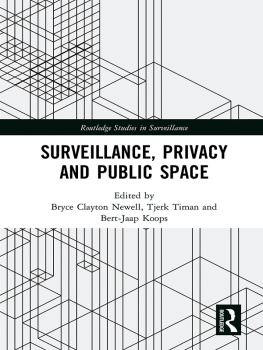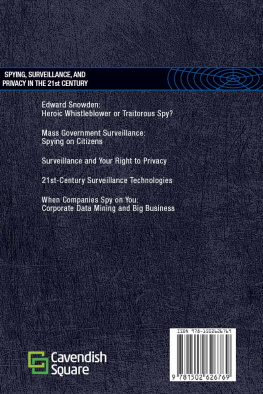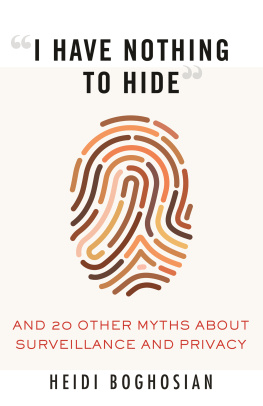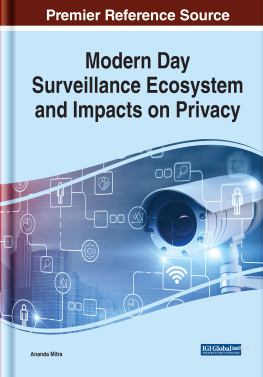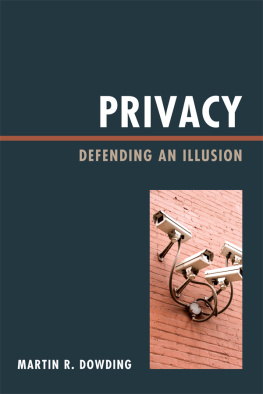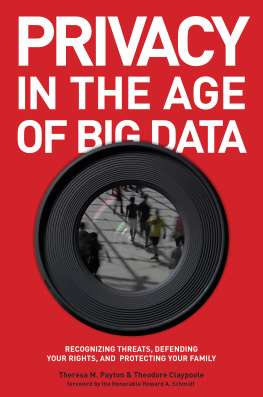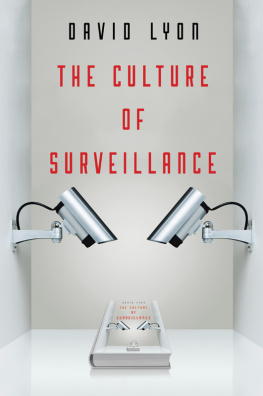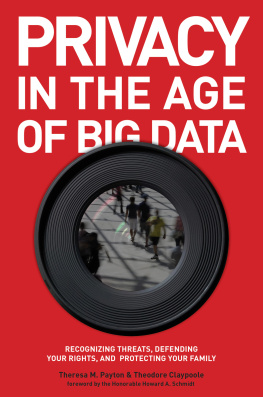Cyrus Farivar - Habeas Data Privacy vs. the Rise of Surveillance Tech
Here you can read online Cyrus Farivar - Habeas Data Privacy vs. the Rise of Surveillance Tech full text of the book (entire story) in english for free. Download pdf and epub, get meaning, cover and reviews about this ebook. year: 2018, publisher: Melville House Publishing, genre: Detective and thriller. Description of the work, (preface) as well as reviews are available. Best literature library LitArk.com created for fans of good reading and offers a wide selection of genres:
Romance novel
Science fiction
Adventure
Detective
Science
History
Home and family
Prose
Art
Politics
Computer
Non-fiction
Religion
Business
Children
Humor
Choose a favorite category and find really read worthwhile books. Enjoy immersion in the world of imagination, feel the emotions of the characters or learn something new for yourself, make an fascinating discovery.

- Book:Habeas Data Privacy vs. the Rise of Surveillance Tech
- Author:
- Publisher:Melville House Publishing
- Genre:
- Year:2018
- Rating:3 / 5
- Favourites:Add to favourites
- Your mark:
- 60
- 1
- 2
- 3
- 4
- 5
Habeas Data Privacy vs. the Rise of Surveillance Tech: summary, description and annotation
We offer to read an annotation, description, summary or preface (depends on what the author of the book "Habeas Data Privacy vs. the Rise of Surveillance Tech" wrote himself). If you haven't found the necessary information about the book — write in the comments, we will try to find it.
Habeas Data Privacy vs. the Rise of Surveillance Tech — read online for free the complete book (whole text) full work
Below is the text of the book, divided by pages. System saving the place of the last page read, allows you to conveniently read the book "Habeas Data Privacy vs. the Rise of Surveillance Tech" online for free, without having to search again every time where you left off. Put a bookmark, and you can go to the page where you finished reading at any time.
Font size:
Interval:
Bookmark:
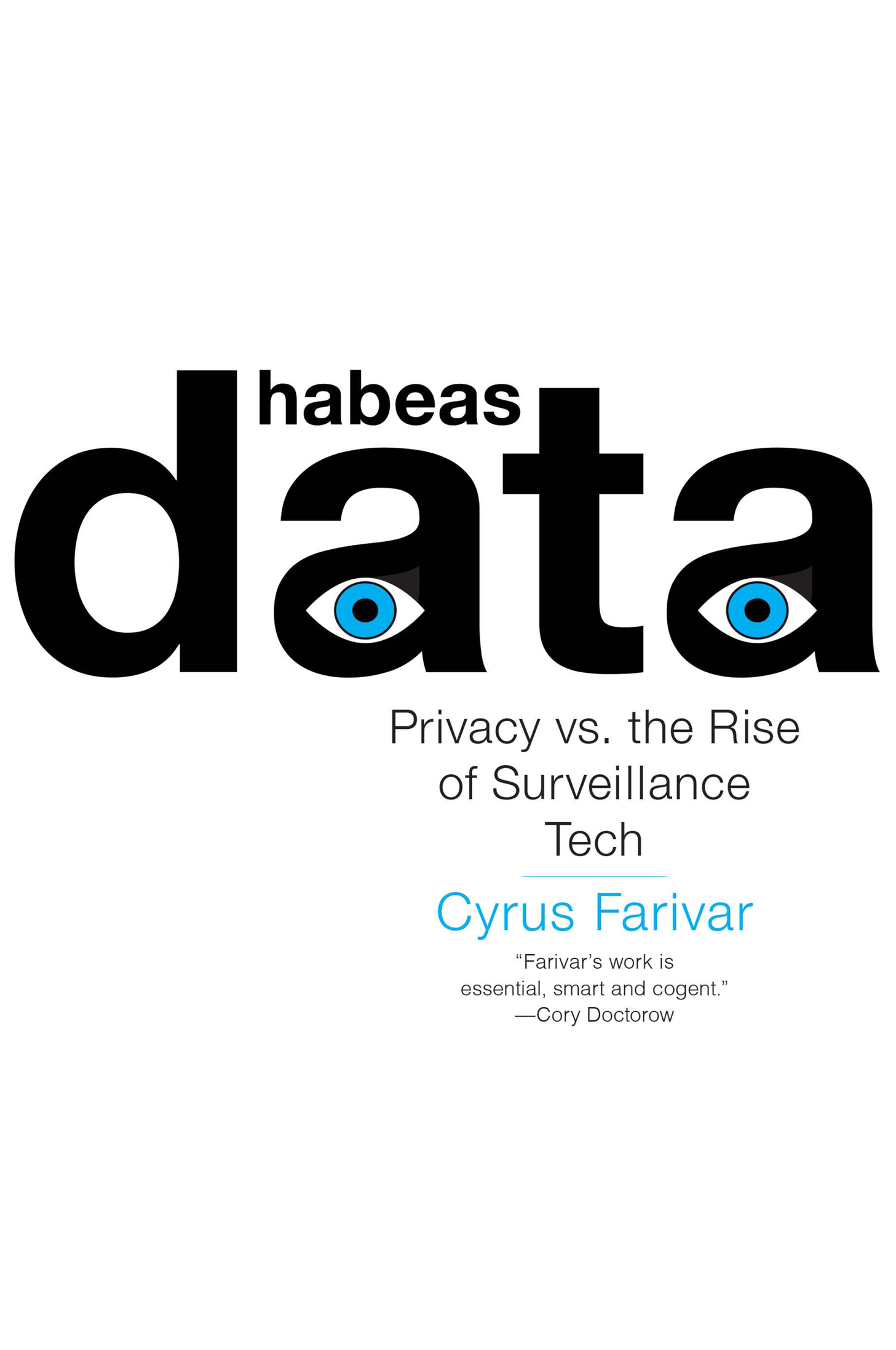
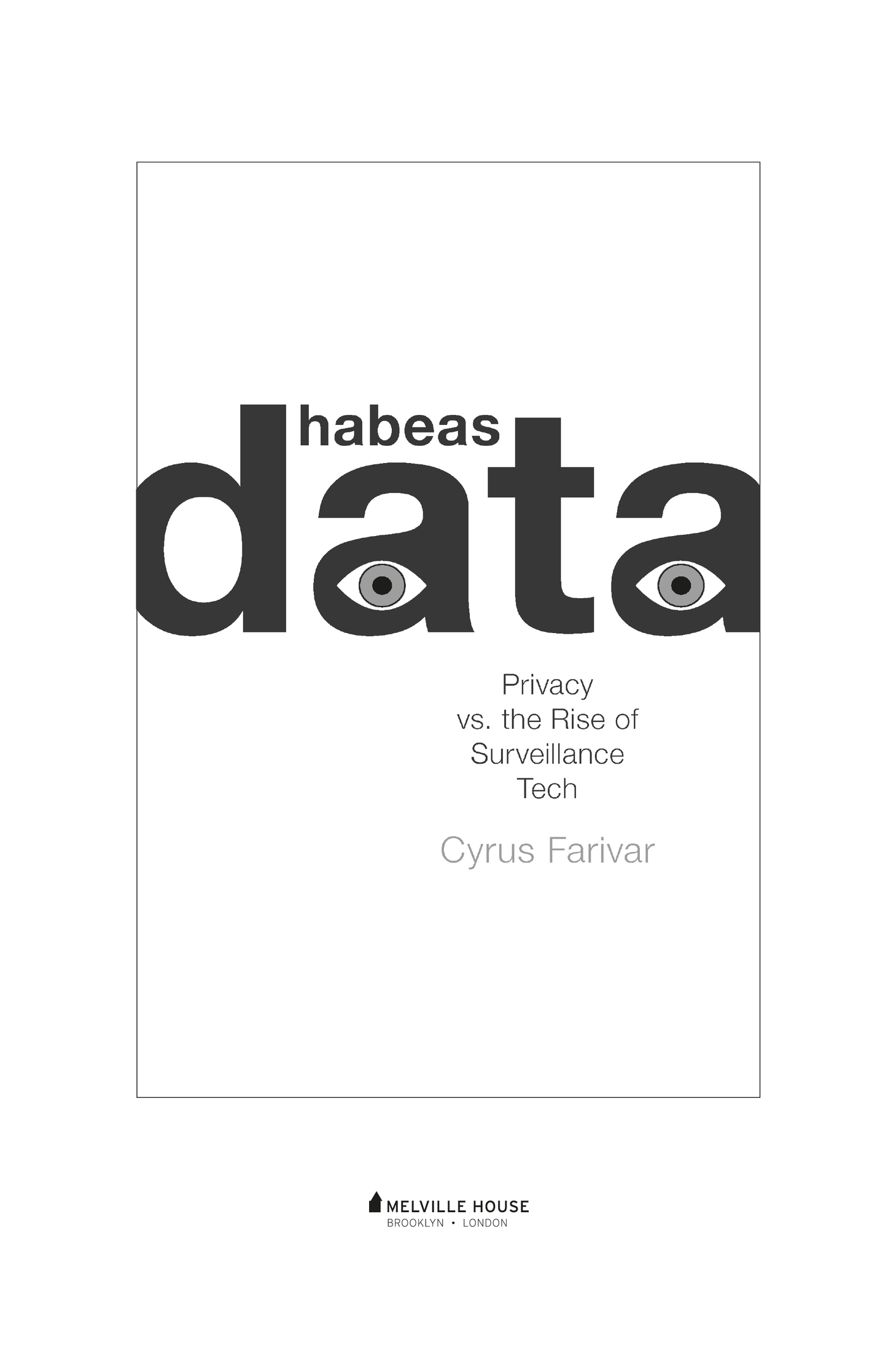
HABEAS DATA
Copyright Cyrus Farivar, 2018
All rights reserved
First Melville House Printing: May 2018
Melville House Publishing
46 John Street
Brooklyn, NY 11201
and
8 Blackstock Mews
Islington
London N4 2BT
mhpbooks.com
facebook.com/mhpbooks
@melvillehouse
ISBN:9781612196466
Ebook ISBN9781612196473
eBook design adapted from printed book design by Euan Monaghan
A catalog record for this book is available from the Library of Congress
v5.2
a
To Nora and Kas,
I know you will see the world with your own eyes, and make it better in your own way.
With love,
Papa
The fantastic advances in the field of electronic communication constitute a great danger to the privacy of the individual; that indiscriminate use of such devices in law enforcement raises grave constitutional questions under the Fourth and Fifth Amendments; and that these considerations impose a heavier responsibility on this Court in its supervision of the fairness of procedures in the federal court system.
C HIEF J USTICE E ARL W ARREN
L OPEZ v. U NITED S TATES (1963)
I just hate Fourth Amendment cases.
J USTICE A NTONIN S CALIA (2009)
I believe in big data. I believe that large scale aggregation changes our abilitythat one plus one plus one can equal 23.
P AUL R OSENZWEIG
D EPUTY A SSISTANT S ECRETARY FOR P OLICY
D EPARTMENT OF H OMELAND S ECURITY (20052009)
On December 13, 2010, two men ran into a RadioShack on East Jefferson Avenue in Detroit, just blocks away from Chryslers headquarters. One drew a gun, and demanded that the staff load up the latest smartphones into a few laundry bags. Within minutes, it was all over, and theyd made off with thousands of dollars worth of iPhones and Samsung handsets. Timothy Little Tim Carpenter sat in a nearby car, waiting for his accomplices to return.
Along with another man named Timothy Big Tim Sanders, Little Tim orchestrated a massive robbery ring, hitting T-Mobile and RadioShack stores in Michigan and Ohio. Eventually, some of the other robbers were caught, and they quickly flipped. Among the information that they gave to authorities was Little Tims phone number. This proved crucial. With it, authorities quickly got a court order and served it upon Little Tims cell phone company, MetroPCS. This court order, known as a d-order, for the portion of the 1980s-era Stored Communications Act, is routine. Companies respond to them all the time.
Under current law, no warrant is required to simply find out who called whom, when, and from where. Without batting an eye, MetroPCS turned over 127 days worth of Carpenters cell-site location dataeffectively turning his own phone into a snitch. The 12,898 data points showed that yes, he was at the scene of the crime during the robberies. But the data also showed that he was at church many Sunday afternoons, and on occasion, spending the night somewhere that was not his known residence.
The case was successfully challenged all the way up to the Supreme Court. The question looms: Is it OK for law enforcement to obtain such a vast quantity of personal, intimate data about someone without a warrant?
On November 29, 2017, the nine justices heard oral arguments in Carpenter v. United States. Carpenter was represented by Nathan Freed Wessler, a thirty-five-year-old attorney with the American Civil Liberties Union (ACLU).
At issue in this case is the governments warrantless collection of 127 days of Petitioners cell site location information revealing his locations, movements, and associations over a long period, Wessler said.
Before Wessler could even utter his fourth sentence in his opening argument, Justice Anthony Kennedy jumped in.
What is the rule that you want us to adopt in this case, assuming that we keep [United States v.] Miller and Smith v. Maryland on the books?
Justice Kennedy, most often dubbed the courts crucial swing vote, was referring to two bedrock cases dating back to the 1970s, which enshrined the third-party doctrine. The idea of the third-party doctrine is that individuals relinquish their reasonable expectation of privacy when they transact via a third party, like a phone company. In other words, the data given up by Carpenternot only what numbers he called, but where he was while doing socan easily be obtained by the government.
In one short question, Kennedy was expressing the anguish that many judges have had to grapple with over the last half century: Where is the line between appropriate government action when it comes to the surveillance of its citizens? How much privacy do individuals have against the governments use of surveillance technologies, ranging from simple microphones, to wiretaps, to thermal imagers, to cell-site simulators, to drones, and beyond?
In Carpenters case, rather than deploy humans to follow him or his fellow suspects, investigators simply went after his data at MetroPCS. Under the third-party doctrine, police did not need, much less try to obtain, a warrant. But to most ordinary citizens, myself included, this notion seems ludicrous. To the government, getting location data without a warrant is effectively the same thing as having a policeman make physical observations from the street. Modern technology has enabled so much data to be generated by all of us that it effectively has given the government superpowers.
Although police could have gathered a limited set or span of past locations traditionally by canvassing witnesses, for example, never has the government had this kind of a time machine that allows them to aggregate a long period of peoples movements over time, Wessler continued a few minutes later.
In other words, in the absence of a meaningful restraint, government authorities will continue to push as hard as they can.
Since the eighteenth century, some of the most aggressive law enforcement officers have known precisely where the legal limits were, and gone right up to them. Perhaps the most notable articulation of this idea in the twenty-first century came from General Michael Hayden, who served as both the head of the National Security Agency (NSA) and the Central Intelligence Agency. He has famously said since September 11, as a top intelligence official, he would play aggressively and fairly up to the line, so much so that there would be chalk dust on my cleats. While Hayden, as a lifelong Pittsburgh Steelers fan, was referring to the national security state, the same logic often applies for federal and local law enforcement as well.
However, the problem with playing to the edge is that sometimes the judicial system is given an impossible task: serving as a backstop to years of government overreach.
Where and how one can meaningfully withdraw from the watchful eye of the government in the early twenty-first century remains an open question. A half-century ago, the Supreme Court ruled that if someone steps into a phone booth and closes the door, we have a reasonable expectation of privacy, much in the same way that we do at home: in most cases the government needs a warrant first to legally surveil. But since that time, as technology has advanced incredibly quickly, the government has understandably adopted tools to its advantage.
Font size:
Interval:
Bookmark:
Similar books «Habeas Data Privacy vs. the Rise of Surveillance Tech»
Look at similar books to Habeas Data Privacy vs. the Rise of Surveillance Tech. We have selected literature similar in name and meaning in the hope of providing readers with more options to find new, interesting, not yet read works.
Discussion, reviews of the book Habeas Data Privacy vs. the Rise of Surveillance Tech and just readers' own opinions. Leave your comments, write what you think about the work, its meaning or the main characters. Specify what exactly you liked and what you didn't like, and why you think so.

